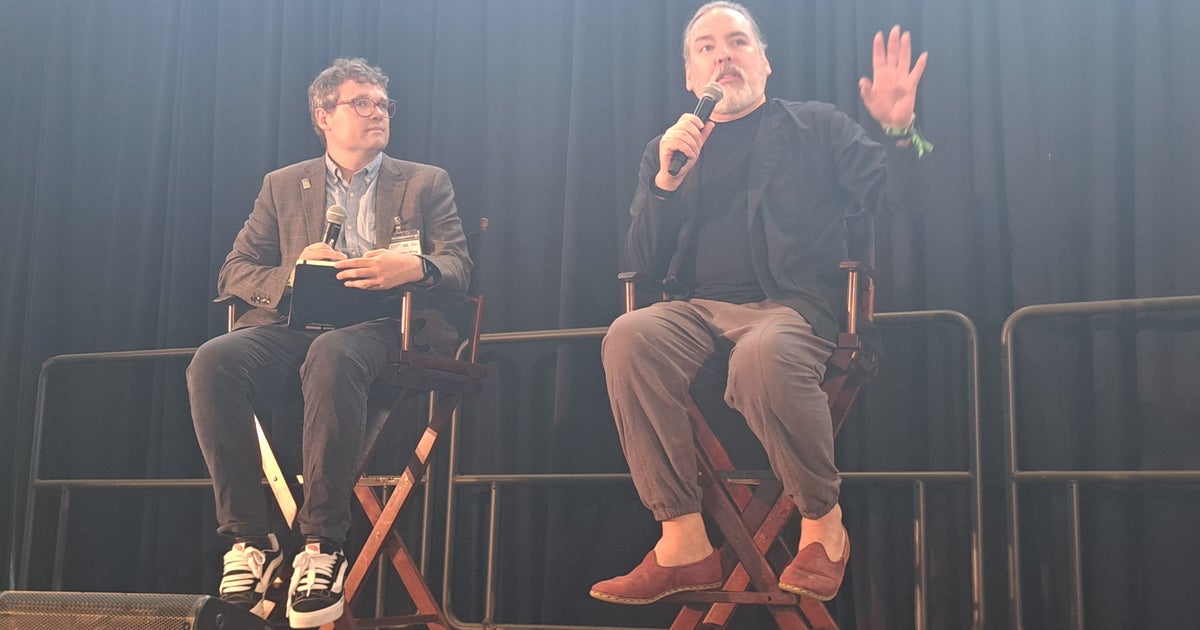Thick Thighs Save Lives
Gold Member
But former PlayStation boss is hopeful games businesses can disrupt itself before the likes of Google and Amazon

 www.gamesindustry.biz
www.gamesindustry.biz
Non-endemic companies such as Google and Amazon are among the biggest threats to the games industry.
That's according to former PlayStation boss Shawn Layden, who shared his thoughts on the future of games during the keynote at last week's GamesIndustry.biz Investment Summit in Seattle.
Speaking on stage with GamesIndustry.biz head Christopher Dring, Layden listed his three biggest concerns among the many challenges the industry faces in the coming years.
"First, consolidation can be an enemy of creativity," he said, referring to the large-scale acquisitions and wave of studio closures we've seen in recent years. "I also think rising costs in gaming are an existential threat to all of us. And the entry of non-endemics into the sector – otherwise known as the 'barbarians at the gate.'
"Right now we see all the big players going, 'Oh, gaming? It's bringing in billions of dollars a year? I want a piece of that' And so we have Google, Netflix, Apple and Amazon wanting to get piece and trying to disrupt out industry."
Layden said the industry should take heed of what happened to other entertainment industries. Music, he said by way of example, was irreversibly disrupted when Apple "convinced everyone that 99 cents per song was a good idea." Similarly, he said Netflix has disrupted the movie business – which used to centre around going to cinemas – buy "getting some content, getting some licences, and nailing it to your house."
"I'm hoping gaming will be the first industry where we disrupt ourselves," he continued. "Where it doesn’t take a Google or an Amazon to completely flip the table. We should be smart enough to see these changes coming and prepare ourselves for that eventuality."
Layden added that some of the larger companies have "figured out that just having tech doesn't mean you can make a game." This was perhaps best demonstrated by the shutdown of Stadia last year, just three years after Google's cloud gaming service launched.
Dring countered that both the market-leading PlayStation and its rival Xbox were introduced by companies that were non-endemic to the games industry. Layden acknowledged this but observed that Sony, for one, understood its own limitations when it came to entering the games market.
"[Sony] knew enough that entertainment was its own beast, so Electronics knew it couldn't manage this business by taking all the guys from the CD division and go after games," he explained. "So in the initial stages of the company, it was a joint venture between Sony Electronics and Sony Music Japan. They knew they had to bring the entertainment… right from the beginning. The people handling the advertising, marketing, publisher relations, PR – those were all Sony Music guys – and they were soliciting publishers to support the platform.
"PlayStation knew that we couldn't do what Sega and Nintendo did and [provide the bulk of the software], we didn't know enough how to make it. We had to be the third-party platform, so we had to get Namco, Square, EA, Activision. Those Sony Music guys are the ones that got Square to move Final Fantasy 7 off of Nintendo and onto PlayStation, probably the biggest sea change move.
"So yeah, we weren't endemic, but I think we brought the entertainment piece in, which really helped accelerate the success of PlayStation."
He added that non-endemics trying to enter the games industry is nothing new. Around 25 years ago, we saw film studios such as MGM, Fox and Sony Pictures starting up their own games businesses.
"They all thought, 'we have IP, there's money in the games space, so let's make games. How hard can it be?' and then they all crashed and burned. And 20 years later you have all these big tech firms, they've got this cloud infrastructure, and they're like 'let's make games. How hard can it be?' and it turns out it's pretty hard."

Shawn Layden issues warning about non-endemics breaking into games
Sign up for the GI Daily here to get the biggest news straight to your inbox Non-endemic companies such as Google and A…
Last edited:
